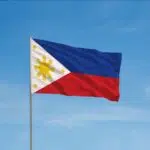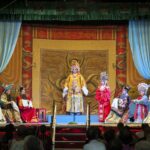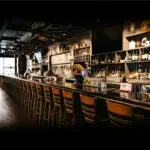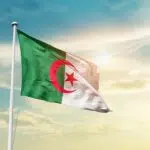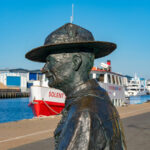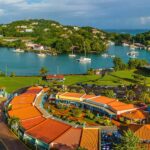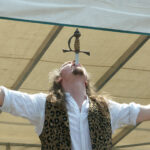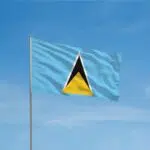Saint Lucia Independence Day is celebrated annually on February 22 to commemorate the day when Saint Lucia gained its complete independence from the United Kingdom in 1979. First inhabited by the Arawaks and Caribs, Saint Lucia was colonized by the French and British in the 17th century. Previously called Iyanola by the Arawaks and later Hewanorra by the Caribs, Saint Lucia was also known as Helen of the West Indies due to being frequently switched between French and British control. It was then officially ceded to the British by the French in 1814.
History of St. Lucia Independence Day
Saint Lucia Independence Day is celebrated annually on February 22 in remembrance of the day when the county achieved its complete independence from the United Kingdom. There are typically events held on the day, including a ceremony, annual military parade, street parade, tennis tournaments, church services, culture exhibitions, and concerts. The day before, February 21, the eve of independence day, is National Colors Day, when people are encouraged to wear something reflective of the country’s national colors.
Saint Lucia is an island country located in the Western Indies in the eastern Caribbean Sea. Its first proven inhabitants were the Arawaks, believed to have come here around 200 to 400 A.D. The Caribs later arrived and seized control from the Arawaks around 800 A.D. The Arawaks called the island ‘Iyanola’ — meaning ‘Land of the Iguanas’ due to the island’s high number of iguanas. The Caribs called this island Hewanarau and later Hewanorra. Besides, it was known as Helen of the West Indies because of being fought over by the French and British.
The French were the first Europeans to settle on Saint Lucia, signing a treaty with the Caribs in 1660. In 1663, the British took control of the island. They were then at war with the French 14 times, resulting in frequent changes in the rule on the island. In 1814 Saint Lucia was officially ceded to the British by the French as part of the Treaty of Paris, and it became one of the British Windward Islands colonies. Saint Lucia joined the West Indies Federation in 1958 and became a self-governing island as a member of the West Indies Associated States in 1967. On February 22, 1979, Saint Lucia achieved its complete independence under Sir John Compton of the conservative United Workers Party (U.W.P.).
St. Lucia Independence Day timeline
The Arawaks come to Saint Lucia, naming it ‘Lyanola.’
The French settle on Saint Lucia, signing a treaty with the Caribs.
Saint Lucia is officially ceded to the British by the French.
Saint Lucia achieves its complete independence under Sir John Compton.
St. Lucia Independence Day FAQs
What language do they speak in Saint Lucia?
Although English is the official language of Saint Lucia, most Saint Lucians speak Creole French known as Patwa.
When was it discovered?
Recent evidence suggests that Columbus’ former navigator Juan de la Cosa was the first European to set foot on the island in 1499.
When did slavery end in Saint Lucia?
Although the British abolished the African slave trade in 1807, slavery in Saint Lucia was abolished in 1834.
St. Lucia Independence Day Activities
Wear the national colors
You are encouraged to wear Saint Lucia’s national colors the day before Independence Day. Since it has four colors, you still have options of colors to wear on the day.
Join the celebrations
There will be events held to celebrate Saint Lucia Independence Day. It’s a day off, so you may want to go to the streets and join the celebrations with fellow Saint Lucians.
Hold an event
Join forces with your community to hold an event to commemorate the independence of Saint Lucia. It can be as simple as gathering in the neighborhood, with the community wearing the national colors.
5 Interesting Facts About Saint Lucia You Need To Know
It’s named after a woman
Saint Lucia was named after Lucia of Syracuse, a Christian martyr, making it the only country named after a woman.
Jacquot can only be found here
Jacquot, or Saint Lucia parrot, is endemic to Saint Lucia; it is the country’s national bird.
The world’s only drive-in volcano is here
The only drive-in volcano in the world is located in Sulphur Springs, Saint Lucia.
It has a World Heritage Site
Saint Lucia is home to a World Heritage Site, the Pitons — Gros Piton and Petit Piton.
Its homebrew pilsner is named Piton
Saint Lucia produces its own homebrew pilsner called Piton, a local favorite.
Why We Love St. Lucia Independence Day
We commemorate it
Saint Lucia Independence Day is to commemorate the day when this island gained its complete independence. Independence for one’s country is really precious.
We appreciate freedom
Freedom is usually attained through sacrifices. We should appreciate it once we have it. Saint Lucia Independence Day is the right time for people to do so, and it can be as simple as a prayer or just being grateful for it.
It’s a day off
Saint Lucia Independence Day is a public holiday, which means free time for us. We can have additional free time for ourselves thanks to this holiday.
St. Lucia Independence Day dates
| Year | Date | Day |
|---|---|---|
| 2025 | February 22 | Saturday |
| 2026 | February 22 | Sunday |
| 2027 | February 22 | Monday |
| 2028 | February 22 | Tuesday |
| 2029 | February 22 | Thursday |

